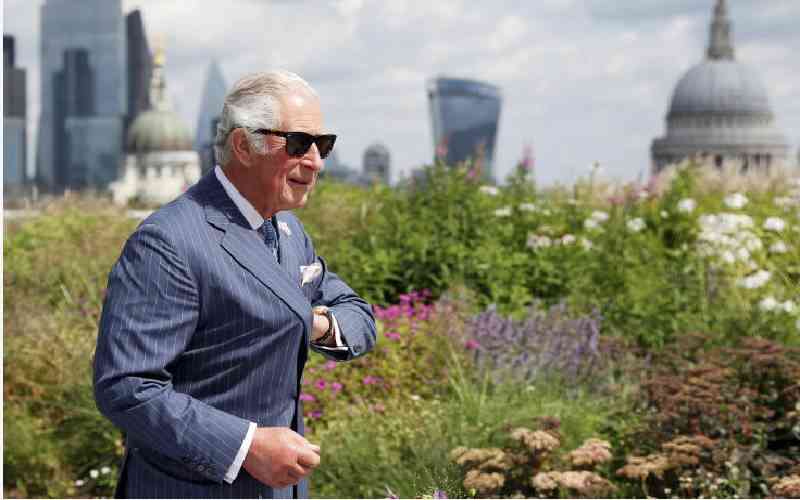×
The Standard e-Paper
Fearless, Trusted News

Britain's Prince Charles visits the Goldman Sachs Head Quarters on July 14, 2021. [Peter Nicholls, AP]
King Charles III will be officially proclaimed Britain's monarch on Saturday in a ceremony steeped in ancient tradition and political symbolism - and, for the first time, broadcast live.